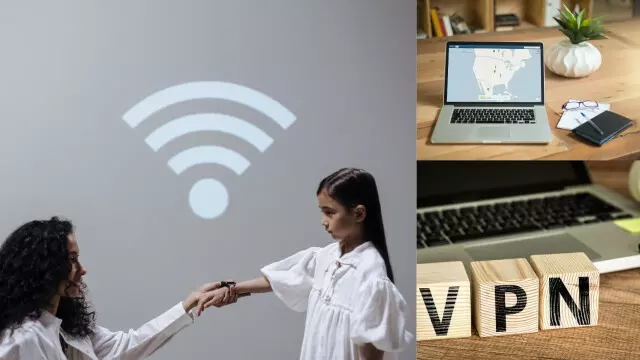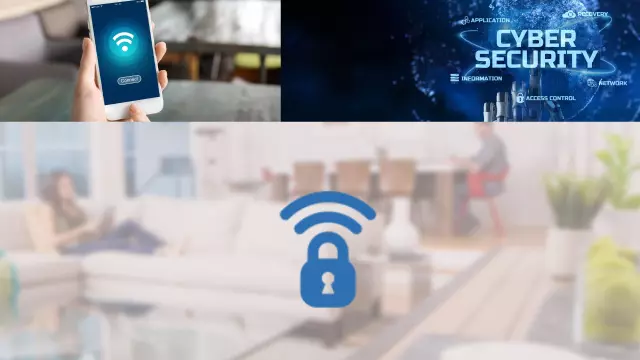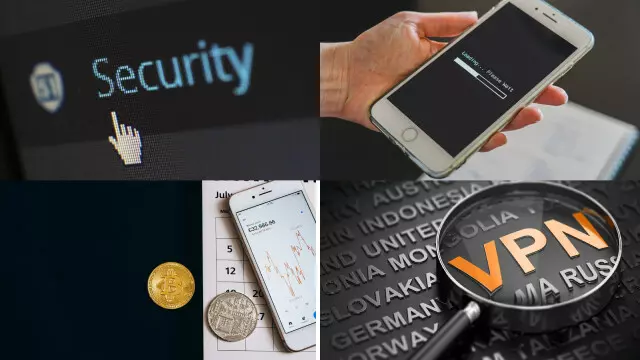Introduction to Virtual Private Networks (VPNs)
Virtual Private Networks (VPNs) are an essential tool for anyone who values online privacy and security. A VPN allows you to create a secure and private online connection by encrypting your internet traffic and routing it through a secure server.
By using a VPN, you can protect your internet activities from prying eyes and cyber threats, and can also bypass censorship and access restricted content. Whether you are at home, on a public Wi-Fi network, or traveling abroad, a VPN can provide you with the protection you need to enjoy the full benefits of the internet.
When choosing a VPN, it is important to consider factors such as the speed of the VPN connection, security features, compatibility with your devices and internet service, and ease of use. With the right VPN, you can enjoy a secure and private online experience, no matter where you are or what you are doing.
In today’s digital age, using a VPN is a smart choice for anyone who values online privacy and security. Whether you are a business traveler, a student, or simply someone who wants to protect their online activities, a VPN can provide you with the protection you need to enjoy the full benefits of the internet.
How a VPN works to protect your online privacy
A Virtual Private Network (VPN) works by encrypting your internet traffic and routing it through a secure server, thereby hiding your online activities from prying eyes. When you connect to a VPN, your internet traffic is encrypted, making it almost impossible for anyone to intercept or access your data.
The VPN then sends your encrypted traffic through a secure server located in another location, thereby hiding your IP address and making it appear as though your online activities are originating from a different location. This makes it nearly impossible for anyone to track your online activities, including your internet service provider, government agencies, or cyber criminals.
In addition to protecting your online privacy, a VPN can also enhance your online security by protecting you from cyber threats such as hacking, identity theft, and online tracking. A VPN can also help you bypass censorship and access restricted content, even if you are in a country with strict internet controls.
By using a VPN, you can enjoy the full benefits of the internet with peace of mind that your online activities are secure and private. Whether you are at home, on a public Wi-Fi network, or traveling abroad, a VPN can provide you with the protection you need to enjoy a secure and private online experience.
Virtual Private Networks (VPNs) are versatile tools that offer a range of benefits for internet users. One of the most common uses for a VPN is enhancing online security by encrypting internet traffic and protecting against cyber threats such as hacking and identity theft.
Another common use for a VPN is bypassing geo-restrictions and censorship. A VPN can allow you to access websites and content that might otherwise be restricted in your location, giving you the freedom to enjoy the full benefits of the internet.
VPNs are also commonly used by businesses to secure remote connections and protect sensitive data. By using a VPN, employees can access company networks and data from remote locations, ensuring that sensitive information remains secure.
For travelers, a VPN can provide peace of mind when accessing the internet on public Wi-Fi networks. With a VPN, you can encrypt your internet traffic, making it much more difficult for cyber criminals to steal your personal information.
Whether you are looking to enhance your online security, bypass geo-restrictions, or access restricted content, a VPN can provide you with the tools you need to enjoy a secure and private online experience.
Types of VPNs: free vs paid options
When it comes to Virtual Private Networks (VPNs), there are two main types to choose from: free and paid options. While free VPNs may seem like an attractive option for those on a tight budget, it is important to understand the trade-offs that come with these services.
Free VPNs often have limited bandwidth, meaning you may experience slow internet speeds or difficulty streaming content. They may also collect and sell user data, potentially compromising your online privacy. In addition, free VPNs are often less secure than paid options, making them a poor choice for users who are looking to enhance their online security.
Paid VPNs, on the other hand, offer a wider range of features and typically provide better security and privacy protection. They also typically have more servers to choose from, meaning you can enjoy faster internet speeds and better access to geo-restricted content.
While paid VPNs can be more expensive than free options, they offer peace of mind and the tools you need to enjoy a secure and private online experience. Whether you are looking to bypass geo-restrictions, protect your online privacy, or enhance your online security, a paid VPN can provide you with the protection you need.
Factors to consider when choosing a VPN provider
Choosing the right Virtual Private Network (VPN) provider is important for ensuring the security and privacy of your online activities. When selecting a VPN provider, there are several factors to consider:
- Security and privacy: Make sure the VPN provider uses strong encryption and has a strict no-logging policy. This will ensure that your online activities are protected and your personal information remains private.
- Speed and performance: Ensure that the VPN provider offers fast and reliable internet speeds so you can enjoy an optimal online experience without any lag or buffering.
- Server network: The more servers a VPN provider has, the more options you have for bypassing geo-restrictions and accessing restricted content.
- Compatibility: Make sure the VPN provider is compatible with your device and operating system. Some VPNs may not be available on certain platforms or may require manual configuration.
- Price: Consider your budget when choosing a VPN provider. While free VPNs may seem appealing, they often come with trade-offs such as limited bandwidth and poor security.
By considering these factors, you can choose a VPN provider that meets your specific needs and provides the protection you need to enjoy a secure and private online experience.
Potential downsides and risks of using a VPN
While Virtual Private Networks (VPNs) offer numerous benefits such as online privacy and security, there are also potential downsides and risks to consider.
- Compatibility issues: Some VPNs may not be compatible with all devices or operating systems, or may require manual configuration.
- Slower speeds: VPNs may slow down your internet connection, particularly if the server network is overcrowded or the encryption process is resource-intensive.
- Logging and privacy policies: Some VPN providers may log your online activities, potentially compromising your privacy. It is important to research the logging and privacy policies of a VPN provider before using their services.
- Connection drops: VPNs may experience connection drops, which can cause disruptions to your online activities and potentially expose your online activities to others.
- Legal issues: Depending on where you are located, using a VPN may be against the law. It is important to research the laws and regulations in your country before using a VPN.
While the benefits of using a VPN can far outweigh the potential downsides, it is important to consider the risks and potential downsides of using these services before making a decision. By doing so, you can choose a VPN that meets your specific needs and provides the protection you need to enjoy a secure and private online experience.
Conclusion: is a VPN right for you?
In conclusion, a Virtual Private Network (VPN) can offer numerous benefits such as online privacy, security, and bypassing geo-restrictions. However, it is important to consider the potential downsides and risks of using a VPN before making a decision.
If you value online privacy and security, and want to protect your personal information from prying eyes, a VPN may be the right choice for you. Additionally, if you frequently travel or access restricted content online, a VPN can help you bypass geo-restrictions and access the content you need.
On the other hand, if you do not require a high level of privacy or security and do not frequently travel or access restricted content, a VPN may not be necessary. In this case, using a trusted anti-virus and firewall software may be sufficient to protect your online activities.
Ultimately, the decision to use a VPN is a personal one that depends on your specific needs and requirements. By carefully considering the benefits and potential downsides, you can make an informed decision and choose the best solution to meet your needs and protect your online privacy and security



